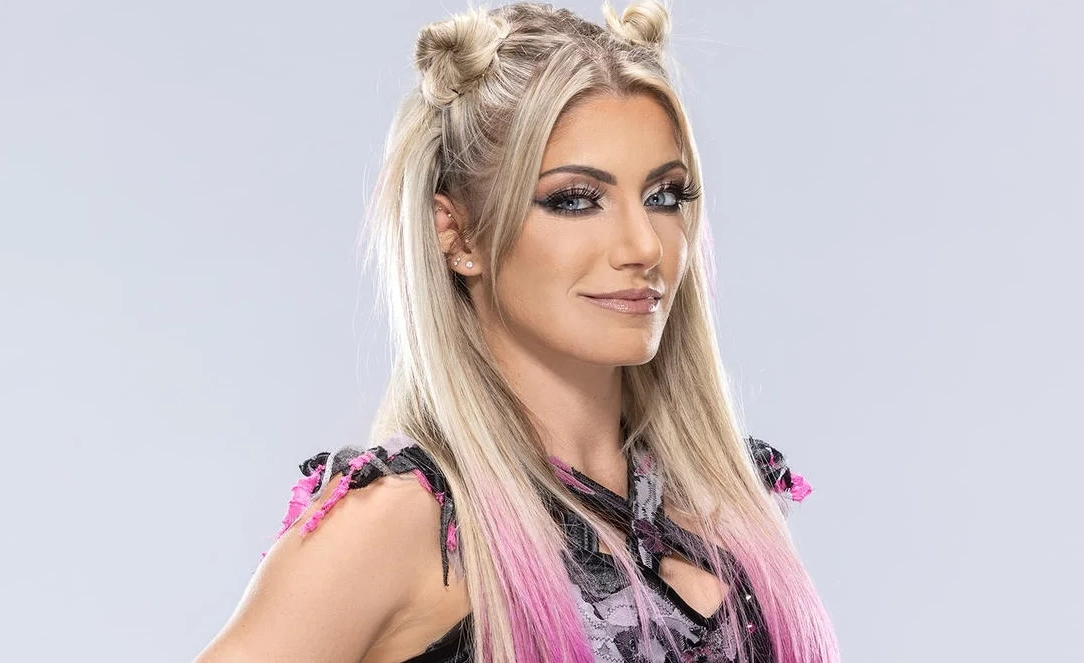
Alexa Bliss is none too pleased with Buzzfeed, this after the mainstream media outlet used a photo of her on an article pertaining to people recording other people without their consent.
Earlier this week, the outlet posted an article titled, “31 Things That Influencers Have Normalized That Are Actually So, So Messed Up”. Buzzfeed took to Instagram on Monday to post a photo of Bliss they used in the article, captioning it with,
“ASK PEOPLE BEFORE YOU RECORD THEM! I know plenty of people who hate being recorded and don’t want you filming them.”
Bliss took to Instagram to respond to the photo of her they used in the article. She wrote,
“Hey @BuzzFeed – “ask people before you record them” maybe ask before using my pic.
If you’re gonna steal it, use it for something SOMEWHAT accurate.
I am a professional athlete & sports entertainer. Not an influencer
#theirony”
Buzzfeed has since deleted their Instagram post.
Hey @BuzzFeed – “ask people before you record them” maybe ask before using my pic.
If you’re gonna steal it, use it for something SOMEWHAT accurate.
I am a professional athlete & sports entertainer. Not an influencer #theirony pic.twitter.com/npX804rpf0
— Lexi (Kaufman) Cabrera (@AlexaBliss_WWE) April 9, 2024
Bam Margera also took to Instagram to post a photo of himself hanging out with WWE Hall of Famer Hulk Hogan, which you can see below:
Alexa Bliss Calls Out Buzzfeed for Misusing Her Photo
Professional wrestler Alexa Bliss recently expressed her dissatisfaction with Buzzfeed, a mainstream media outlet, for using her photo in an article about people recording others without their consent. The article, titled “31 Things That Influencers Have Normalized That Are Actually So, So Messed Up,” caught Bliss’s attention when Buzzfeed posted a photo of her on Instagram with the caption, “ASK PEOPLE BEFORE YOU RECORD THEM! I know plenty of people who hate being recorded and don’t want you filming them.”
Bliss took to Instagram to respond to the use of her photo in the article. In her post, she called out Buzzfeed, stating, “Hey @BuzzFeed – ‘ask people before you record them’ maybe ask before using my pic. If you’re gonna steal it, use it for something SOMEWHAT accurate. I am a professional athlete & sports entertainer. Not an influencer. #theirony.” This response highlights Bliss’s frustration with the misuse of her image and emphasizes that she should not be categorized as an influencer but rather as a professional athlete and sports entertainer.
Following Bliss’s public criticism, Buzzfeed promptly deleted their Instagram post featuring her photo. This action suggests that they acknowledged their mistake and took steps to rectify it. However, the incident raises concerns about the responsible use of images and the importance of obtaining proper consent before utilizing someone’s likeness.
In a separate incident, professional skateboarder Bam Margera also made headlines when he posted a photo on Instagram featuring himself and WWE Hall of Famer Hulk Hogan. While unrelated to Bliss’s situation, this further demonstrates the power of social media platforms in allowing individuals to voice their opinions and share their experiences.
The incident involving Alexa Bliss and Buzzfeed serves as a reminder for media outlets and individuals alike to respect others’ rights and privacy when using their images or personal information. It highlights the need for consent and accuracy in reporting, especially when discussing sensitive topics such as recording people without their consent.
As the digital age continues to evolve, it is crucial for media organizations to prioritize ethical practices and ensure that they obtain proper permissions before using individuals’ photos or personal information. Similarly, individuals should be aware of their rights and speak out when their likeness is misused or misrepresented.
In conclusion, Alexa Bliss’s response to Buzzfeed’s misuse of her photo sheds light on the importance of obtaining consent and accurately representing individuals in media articles. This incident serves as a reminder for both media outlets and individuals to be mindful of ethical practices and respect others’ rights in the digital age.
